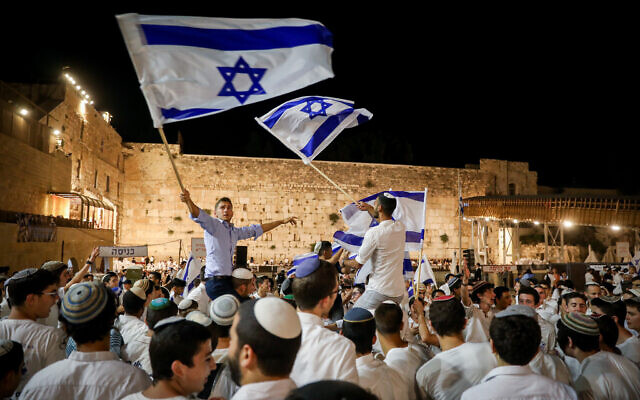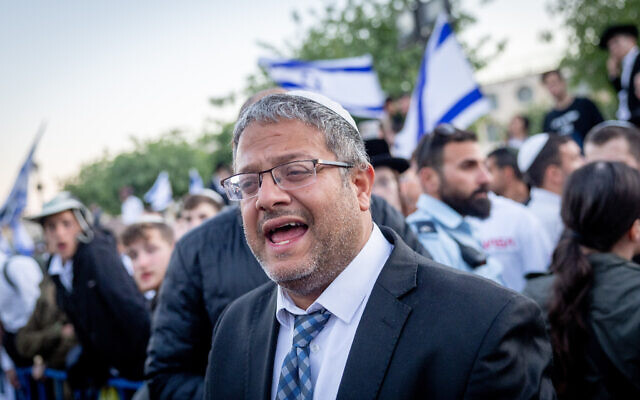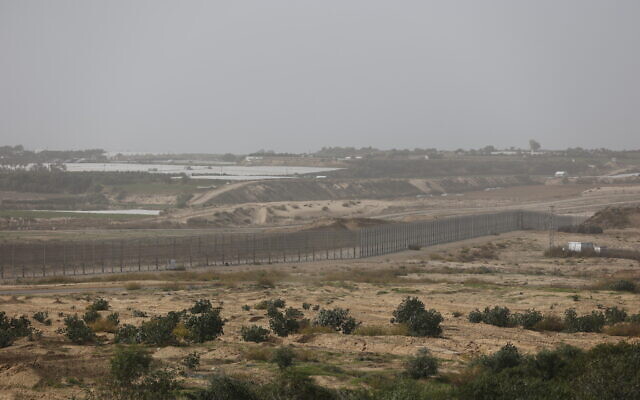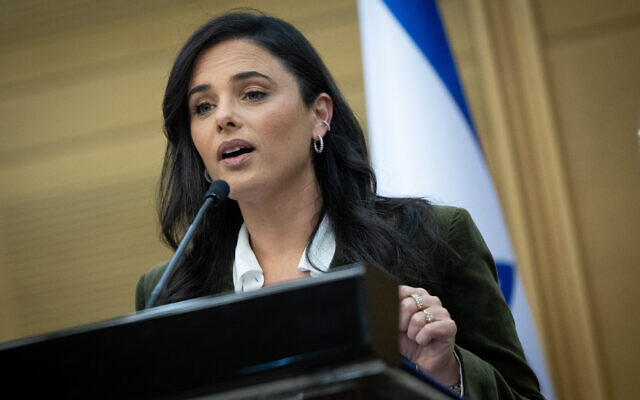IDF apparently not expecting a repeat of last year’s rocket fire from Gaza and subsequent war, but tensions are high as volatile day arrives

Israeli security forces were bracing for the possibility of clashes on the Temple Mount in Jerusalem early on Sunday, ahead of the controversial Jerusalem Day flag march through the Old City later in the day.
Channel 12 reported Saturday, without citing sources, that security officials fear Palestinian rioters will barricade themselves inside the Al-Aqsa Mosque on the Temple Mount overnight Saturday-Sunday, and hurl stones and other items at officers and Jewish visitors as they head onto the compound on Sunday morning.
The annual march, set for Sunday afternoon, does not enter the Temple Mount, but Jewish visitors are being permitted to enter the compound on Sunday morning. The mount is the holiest place in Judaism as the site of the biblical temples, and Al-Aqsa Mosque atop the mount is Islam’s third holiest shrine. Jews are permitted to visit the mount but not to pray there.
Security forces were also bracing for possible violence in the West Bank, rocket fire from Hamas and other terror groups in the Gaza Strip, and even an attack by Iran proxy Hezbollah along the northern border with Lebanon, Channel 12 said. Police have also boosted deployments in readiness for any violence in Jewish-Arab Israeli cities.
As it stands, extremist MK Itamar Ben Gvir will be allowed by police to visit the Temple Mount on Sunday morning. Police believe that while Ben Gvir’s visit could lead to a significant escalation, any consequent clashes could be contained and controlled, Haaretz reported Friday.
Later Sunday, the Jerusalem Day flag march will take place in and around the Old City. Marchers are set to walk along Jaffa Street to Damascus Gate, where access will be blocked for Palestinians. They will continue into the Old City through Hagai Street in the Muslim Quarter and finish at the Western Wall.

Jerusalem Day celebrations began at the Western Wall on Saturday night, with hundreds of people dancing and singing under a massive Israeli flag.
55 שנה לאיחוד העיר.
חג ירושלים שמח!🇮🇱 pic.twitter.com/FW0EYWiDyB— Naftali Bennett בנט (@naftalibennett) May 28, 2022
Jerusalem Day, which marks Israel’s conquest of the Old City and East Jerusalem from Jordan in the 1967 Six Day War, is celebrated most publicly by national-religious Jews, especially by youths who march through the capital while dancing with Israeli flags. The traditional route for the annual march, via east Jerusalem’s Damascus Gate and through the Muslim Quarter to the Western Wall, is considered a provocation by Palestinians and many Israelis.
Israeli authorities altered the route of the 2021 march an hour before it was set to be held following Hamas threats. Police fanned out across the Old City in an attempt to prevent Israeli marchers from reaching Damascus Gate. Organizers then declared the cancellation of the event but hundreds of participants streamed into the Old City. Shortly thereafter, Hamas launched a barrage of rockets toward Jerusalem in what ended up kicking off an 11-day Gaza War.
Senior officials in the Israel Defense Forces’ Gaza Division told leaders of communities along the border with the Strip that they do not expect an escalation similar to last year’s, Channel 13 news reported.

However, Palestinian terror groups including Hamas warned on Saturday of an “explosion” ahead of the march.
Hamas leader Ismail Haniyeh said earlier this week that “the Palestinian people, led by the resistance — especially those in the West Bank and Jerusalem — will not permit this Jewish, Talmudic rubbish to go unanswered.”
According to Channel 12 Saturday, Hamas is at odds with other terror groups in the Strip over a response to the march, with Palestinian Islamic Jihad favoring rocket attacks and Hamas preferring to refrain.
Meanwhile, some prominent Israeli political and religious figures sought to emphasize that the flag march and its route into the Muslim Quarter were not new and promised that the fragile status quo on the Temple Mount will not change.
Interior Minister Ayelet Shaked criticized on Saturday what she described as “attempts to blur the national meaning of the day,” falsely depict it as “something religious or sectoral” and portray those marching through the streets of the unified city as “extremists” and “provocateurs.”

“This is not a sectarian day but a national day,” she said, marking the unification of the capital “to which Jews have directed their prayers for thousands of years.” She called on parents to celebrate the festive day with their children.
Jerusalem Mayor Moshe Lion said in a video that participants in the march “will do this without hurting people from other religions.”
Rabbi Yaakov Shapira, head of the Mercaz Harav Yeshiva in Jerusalem, said in the video that the march was initiated at his yeshiva, by the late Rabbi Yehuda Hazani. “His intention was to express the connection between the new city and the old city, between Jerusalem that was destroyed and the [re]built Jerusalem.”
Rabbi Yaakov Ariel, a Ramat Gan-based rabbi and prominent religious Zionist thinker, stated that the march of the flags is meant to bring “happiness and respect,” and called on those with an intention to harm others not to participate.
In a video posted in Arabic, Major General Ghassan Alian, Coordinator of Government Activities in the Territories (COGAT), urged Palestinians not to believe misinformation and incitement campaigns against the march, noting that it had taken place for more than 30 years, and was “not new.”
By contrast, Health Minister Nitzan Horowitz (Meretz) told Channel 12 on Saturday that it was a “mistake” to allow the march through Damascus Gate and into the Muslim Quarter, criticizing Public Security Minister Omer Barlev’s decision to allow it to go ahead.
“This plan is a problem. It’s possible to move it to a different route; nothing [bad] will happen,” Horowitz said, and added that it was mistake to allow “this provocation at such a sensitive time.”
As reported by The Times of Israel
